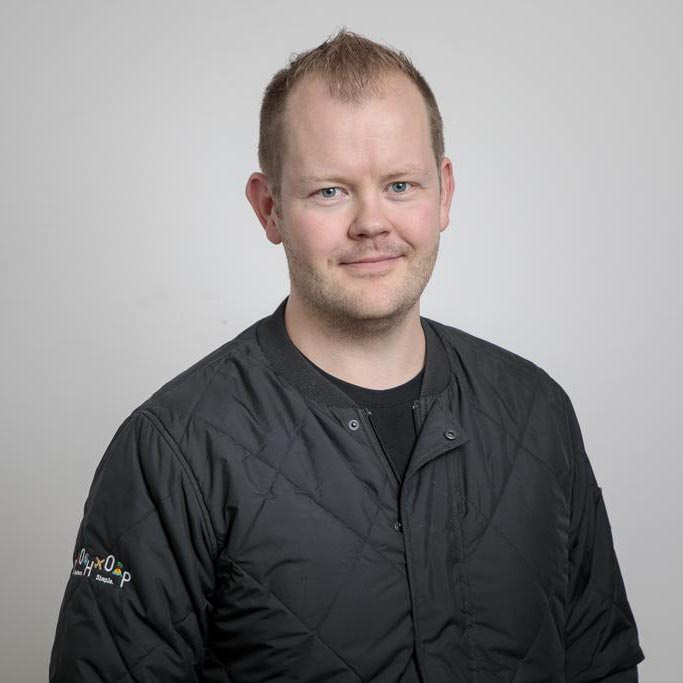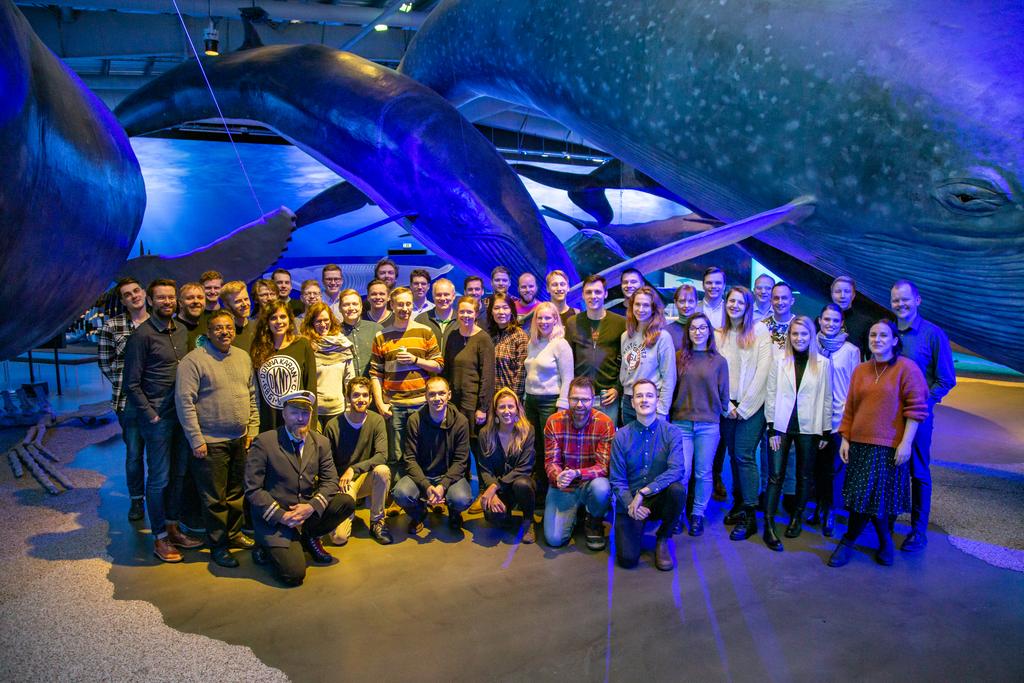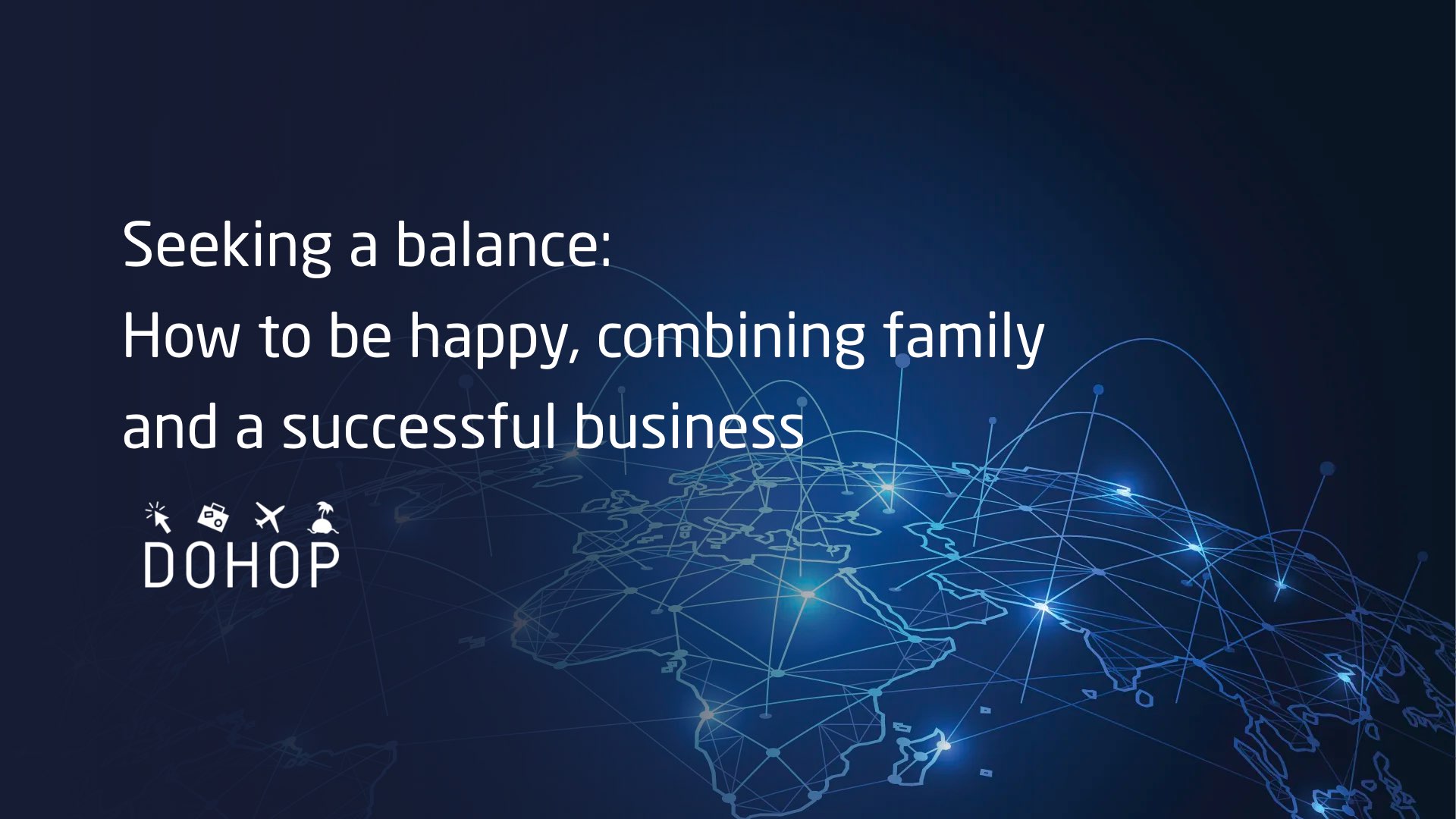This interview took place before COVID-19 pandemic.
The most challenging thing in business

‘Seeking a life balance’ is one of the traditional philosophic quests with no definitive answer. Human beings have too many components that influence their physical and psychological equilibrium, so it’s hard to define a unique formula to resolve an equation with so many variables. But people still try. Interestingly, most individuals primarily use empirical instruments and can achieve notable results, maybe even better than philosophers or psychologists.
David Gunnarsson seems to be the person who has advanced achievements in resolving this issue. Being a successful 39-year old CEO at Dohop, a company with 80+ members on board, David tries to spend as much time as he can with his family, while the startup shows stable growth. How can he do that? We spoke to him to learn more.
When did Dohop appear, and what is ‘connecting flights’?
“I started in Dohop in 2009 as head of marketing, whereas the company was founded in 2004”, began David Gunnarsson“. In 2015, I saw some technical problems we could solve with Dohop, and we started advancing the company as a technology provider for airlines. We had developed a lot of our own technology for flight search, and now we are a tech provider to airlines, enabling them to sell connecting flights.”
“We are a tech provider to airlines, enabling them to sell connecting flights.”
David Gunnarsson
The first question that appeared after the short introduction was ‘what are connecting flights?’. The CEO of Dohop explained it in more detail. “We have schedule data for all flights in the world; then we build a unique graph of how any two points can be connected in reasonable one or two stop connections. That is the foundation of the technology we deliver via an online platform, which allows airlines to sell this opportunity online, directly to their customers. So, we build connecting flights for carriers, which they can offer on their website without additional technical implementation. Our solutions are called Interline 2.0 and Virtual Interline, and they allow consumers to book connecting, long-haul flights directly with their preferred airlines”.
A breakthrough idea can storm the front
The list of Dohop’s clients is impressive. The first paying customer is always a challenge to startups, but when your first client is Gatwick Airport, the bright future of the company is almost predetermined. According to David Gunnarsson, they are proud of every client they have, and names such as easyJet, Jetstar, Avianca or Transavia only confirm the scale of the company.
Future, COVID-19, and possible threats
As the interview took place before the wide spreading of COVID-19, future expectations of Dohop’s CEO can seem too optimistic. However, plans also show that the firm achieved notable results and has made itself ready for the new challenges. “Well, last year our growth was 100%, and we are expecting similar growth this year. Right now, we are focusing on signing new airlines and onboarding and helping them succeed with our platform.” Who knows, maybe the world crisis will only facilitate the demand for low-cost carriers?
Consideration of the future cannot be complete without mentioning the threats and risks that everyone can meet. Although the COVID-19 pandemic is undoubtedly the biggest one nowadays, David Gunnarsson explained other sources of potential danger. “The biggest threat for Dohop is the inability to deliver what we have promised to airlines. Our product is relatively new, and when you introduce a new concept to the world there is always associated risk, especially because we are creating a market, and that’s different from creating a product.”
Flexible hiring leads to the stable development
This last element can be of particular interest for business people. Not only does the company have dozens of people, but those employees are also situated in different countries, and accomplish various tasks remotely. “In total there are about 80 people, 35 of them are always in Kyiv, Ukraine. About 30 employees are based in Iceland, while our commercial team is situated in the UK. We also have a development center in Minsk. What I am most proud of regarding our people is their ability to quickly spot and solve arising challenges.”

It’s always interesting to know what the impression of European business owners is towards remote workers from Eastern Europe, and David gladly shared it. “We have local providers in Kyiv and Minsk who provide outsourcing. In our case, we tend to hire people and treat them as if they are our direct employees. We are proactive in making them feel like they are part of our team, not just temporary workers. Also, we hire them for the long term as we do with everyone in our company.”
“We tend to hire people and treat them as if they are our direct employees. We are proactive in making them feel like they are part of our team, not just temporary workers.”
David Gunnarsson
Balancing a successful business and family, a Nordic habit
We were eager to understand how David manages to combine a successful business which is time-consuming, while still finding time for his family, and for himself, all while living in the fast-paced environment that London is. “In Iceland, and in the Nordic countries generally, nurturing both your business and your family equally is a focus. You don’t stop taking your son to football practice just because you lead a company at the same time.” When asked if he struggles to find time for both, David said: “I try to spend about 2-3 hours a day with my family when I am at home, which is not frequent. I have to travel a lot, talk with our clients and prospective customers. I try to find a balance when I’m at home, and I try to follow some schedule on weekdays and during weekends. I think it’s a matter of having the right mindset, setting expectations for yourself, and following through”.
This seems to be a skill that puts Iceland and the Nordic countries ahead when it comes to general happiness. “The culture in Iceland, and our organizational culture in Dohop, supports and actively encourages people to take time for themselves, spend it with their families and take vacations. What good would it be to have a team of overworked people suffering from burnout, who don’t enjoy being in the office among their peers, or excelling at their tasks remotely? Sure, we work hard, but it’s also about working smart, and then using the time to tend to one’s families, hobbies, or spending time in nature.”
Is social media hindering happiness?
Actually, David’s attitude towards social media and following others is directly related to the rest of this article. He tries to combine family and work in harmony, and that is why he is “not following any famous executives in the direct meaning of this word. I’m either working or spending time with my family. Following someone is something that I do not consider to be a pleasant or useful way of spending my time (smiling), I just don’t want to spend time on that. Social media is often the place for superficial stuff, and I don’t care about that. I prefer reading books.”
Advice for young entrepreneurs
One of the best ways to get valuable advice is to ask someone what they do in a specific situation. In the interviews with co-founders, young entrepreneurs, and startuppers, we often ask them to give advice to oneself, but 10 or 20 years younger. It is always interesting to hear such useful suggestions.
“I guess, I would say ‘just wait a minute and feel the moment’. I mean that I’m pretty happy with my current life, so I don’t want to change many things. Also, I would probably say ‘stop paying attention to other people and what they think or say about you’. However, everything depends on the actions. If you read something in a book or get advice but don’t do anything about it, it has no impact. Also, do not compare what you are doing to what other people are doing, as it doesn’t matter. Everyone is in a unique situation, and we are all just trying to do our best.”
“Stop paying attention to other people and what they think or say about you.”
David Gunnarsson
Can this be the success formula?
David Gunnarsson seems to be a wise and optimistic person. Although he is still seeking the best balance between work and family, the attitude towards both says even more. He respects every remote worker, tries to be with his family as much as he can while making customers feel that they are important to the company. Of course, one can say that it’s a coincidence that Dohop is a successful firm and they are lucky because of their USP. However, when the CEO is able to look in different directions prudently, another outcome is almost impossible.




